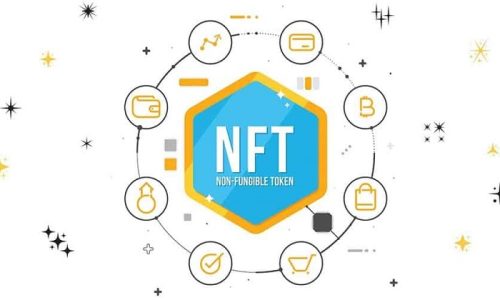
Introduction
A high-level, interpreted, and multipurpose programming language is called Python. Python, developed by Guido van Rossum and originally made available in 1991, has grown incredibly popular because of its ease of use, readability, and adaptability. Its emphasis on the readability of code enables programmers to convey concepts in fewer lines of code than in other languages.
Programming paradigms such as procedural, object-oriented, and functional programming are all supported by Python. It is appropriate for various disciplines, including web development, data analysis, scientific computing, artificial intelligence, and more. Its huge standard library offers ready-to-use modules and functions for multiple applications.
Some Key Features And Characteristics Of Python Include
- Easy-To-Read Syntax: Python’s syntax is designed to be clean and straightforward, emphasising readability and reducing the learning curve for new programmers.
- Dynamically Typed: Python is dynamically typed, meaning you don’t need to declare variable types explicitly. Varying types are determined at runtime, providing flexibility and ease of use.
- Automatic Memory Management: Python handles memory management automatically through a garbage collector, relieving programmers from manual memory management tasks.
- Extensive Standard Library: Python has a comprehensive library that provides functions and modules for common tasks, including networking, file I/O, data serialisation, string manipulation, and more.
- Third-Party Ecosystem: Python has a thriving community and has developed an extensive ecosystem of third-party libraries and frameworks. These libraries, such as Pandas, Flask, Django, TensorFlow, NumPy, and PyTorch greatly expand the capabilities of Python and enable developers to build difficult & complex applications efficiently.
- Compatible Cross-Platform System: Python is available on various operating systems, including Linux, Windows, and macOS. This feature allows Python programmers to write code once and run it on different systems without major modifications.
- Interactive Shell And Scripting: Python provides an interactive cover for quick experimentation and prototyping. It also excels at scripting tasks, enabling the automation of repetitive tasks and the creation of small utility programs.
Python has a vibrant and supportive community with extensive documentation, tutorials, forums, and online resources available for learning and troubleshooting. Its popularity and versatility make it an excellent choice for beginners and experienced programmers. Python Training In Chennai offers a structured learning environment where individuals can benefit from experienced instructors, industry-relevant curricula, and interactive sessions. These programs often focus on real-world applications of Python, including web development, data analysis, and machine learning, aligning with the job market demands.
With its simplicity and versatility, Python has become one of the most popular programming languages. As a beginner, you’ve taken the first step in learning Python, but how can you continue advancing your skills and becoming an expert? This blog post will provide valuable tips and top resources to help you excel in Python. Whether you want to dive into advanced topics, build a project portfolio, or adopt efficient learning strategies, this guide will equip you with the tools and knowledge to take your Python skills to the next level.
The national average salary for a Python Data Analyst is ₹83,065 in India.[1]
Efficient Learning Strategies
Focus on fundamentals: Solidify your understanding of core concepts like variables, data types, control flow, and functions. Strengthening these foundations will make advanced topics easier to grasp.
- Practice Regularly: Dedicate consistent time to coding exercises and projects. This hands-on experience will reinforce your learning and improve your problem-solving skills.
- Join Coding Communities: Participate in online forums, such as Reddit and Stack Overflow, to ask questions, share knowledge, and engage with a community of Python enthusiasts.
- Code Review And Collaboration: Seek code reviews from experienced developers to receive feedback on your coding style and identify areas for improvement. Collaborating with others on projects will expose you to different perspectives and approaches.
Building A Project Portfolio
Identify project ideas: Brainstorm and select pictures that align with your interests. Examples include building a web scraper, developing a chatbot, or creating a data visualization tool.
- Break Projects Into Smaller Tasks: Divide them into manageable tasks and work on them incrementally. This approach will help you stay motivated and make progress.
- Showcase Your Work: Create a GitHub account to host and share your projects with potential employers or the programming community. A strong project portfolio demonstrates your practical skills and problem-solving abilities.
Exploring Advanced Python Topics
- Decorators: Decorators are a powerful feature in Python that allows you to modify the behaviour of functions or classes without directly changing their source code. They provide a way to add functionality to existing code dynamically. You can explore different types of decorators, such as function and class decorators, and learn how to use them effectively in your projects. Along with the resources mentioned earlier, you can also refer to the book “Python Decorators: A Complete Guide” by Dan Bader for a comprehensive understanding of decorators.
- Generators: Generators are a special function that can be paused and resumed, allowing for efficient iteration over large data sets. They are particularly useful when dealing with computationally expensive operations or when memory concerns them. Resources like “Generator Tricks for Systems Programmers” by David Beazley and the official Python documentation provide detailed explanations and examples of generators, showcasing their practical applications in various scenarios.
- Metaclasses: Metaclasses are a deep dive into the inner workings of Python’s object-oriented programming. They allow you to define custom behaviours for class creation, such as modifying class attributes or enforcing specific rules. Understanding metaclasses can help you write more flexible and expressive code. In addition to the mentioned resources, the book “Python Metaprogramming: Writing Dynamic and Expressive Programs” by Armin Ronacher provides in-depth coverage of metaclasses and their applications.
- Context Managers: Context managers manage resources by automatically setting up and cleaning up the necessary operations before and after a block of code executes. They ensure proper handling of resources like files, database connections, and network sockets. The “Python’s Context Managers and the ‘with’ Statement” article on Real Python covers various aspects of context managers, including how to define your custom context managers using the contextlib module.
Top Python Learning Resources
Besides the mentioned platforms, several other online resources offer Python tutorials and lessons. Top Training institutes like Infycle Technologies provide free tutorials covering various aspects of the language, from beginner to advanced levels. They often include interactive examples and exercises to reinforce your learning.
- Books: Apart from the suggested books, numerous other Python books are available that cater to different levels of expertise and specific domains. For example, “Python for Data Analysis” by Wes McKinney focuses on data analysis and manipulation using Python and Panda’s library. “Flask Web Development with Python Tutorial” by Miguel Grinberg is a comprehensive guide to building web applications with the Flask framework. Exploring books that align with your interests and goals can enhance your understanding and expertise in specific areas.
- Python Documentation: The official Python documentation is an invaluable resource for Python programmers. It provides comprehensive documentation for the Python language, standard library modules, and various third-party packages. The documentation includes detailed explanations, code examples, and references to related resources. Developing the habit of referring to documentation when encountering new concepts or functions will enrich your understanding and make you more self-sufficient in your Python journey.
- Online Coding Platforms: Besides the mentioned platforms, you can explore other coding platforms offering Python challenges and exercises. Websites like Codewars, Project Euler, and HackerEarth provide a wide range of coding problems to solve, allowing you to practice your Python skills and improve your problem-solving abilities. Participating in coding competitions and challenges can also expose you to different problem domains and help you learn from the approaches of other developers.
- Podcasts And Youtube Channels: In addition to the mentioned podcasts and YouTube channels, several other resources are available in audio and video formats. “Python Podcast” by Tobias Macey features interviews with experts and explores various Python-related topics. YouTube channels like “Python Programmer” and “Corey Schafer” offer tutorials and walkthroughs on different Python concepts and frameworks. These resources provide an alternative way to learn and stay up-to-date with the latest trends and developments in the Python community.
Conclusion
By adopting efficient learning strategies, building a project portfolio, and exploring advanced Python topics, you’ll be on the path to becoming a proficient Python programmer. Remember to practice regularly, engage with coding communities, and leverage the top resources in this blog post. With dedication and persistence, you can excel in Python and unlock endless possibilities in software development, data analysis, machine learning, and more. So, embrace the journey, continue learning, and enjoy the exciting world of Python programming!
Reference
https://www.glassdoor.co.in/Salaries/python-data-analyst-salary-SRCH_KO0,19.htm [1]
Author Bio
The author of the blog is Thiyagu. He is working as a Marketing Strategist in multiple companies with several projects, and he always strives for quality and effective content for students and professionals in education and career. And he never misses out on giving the best.



